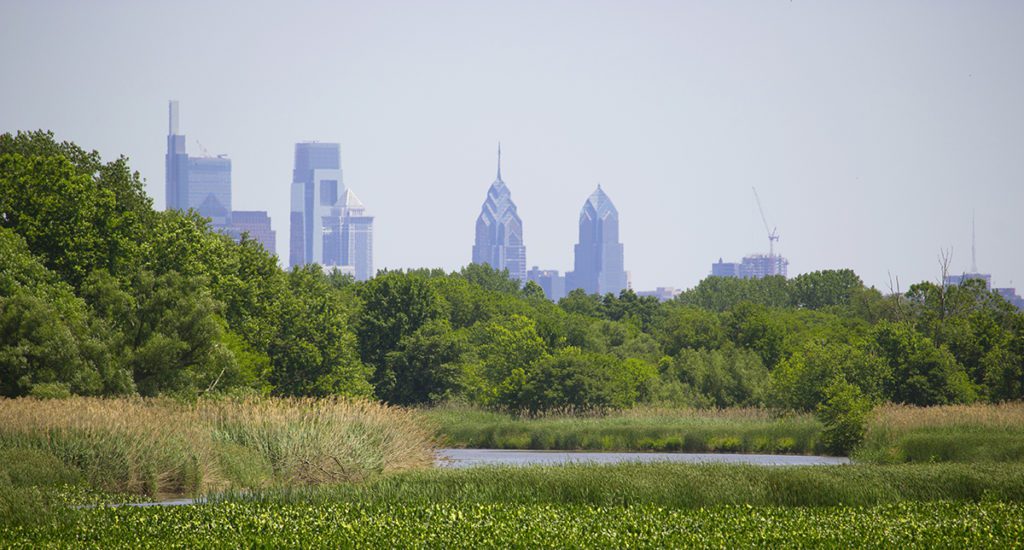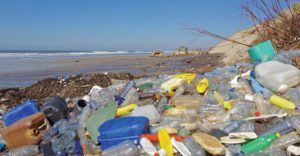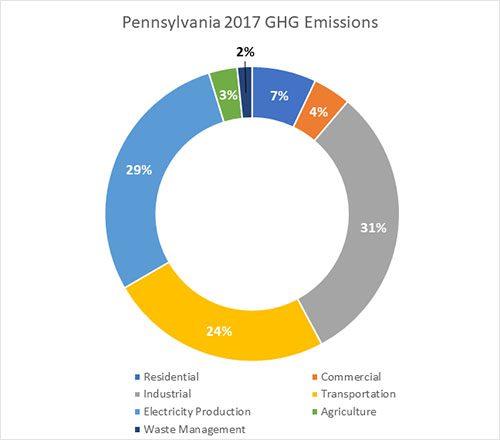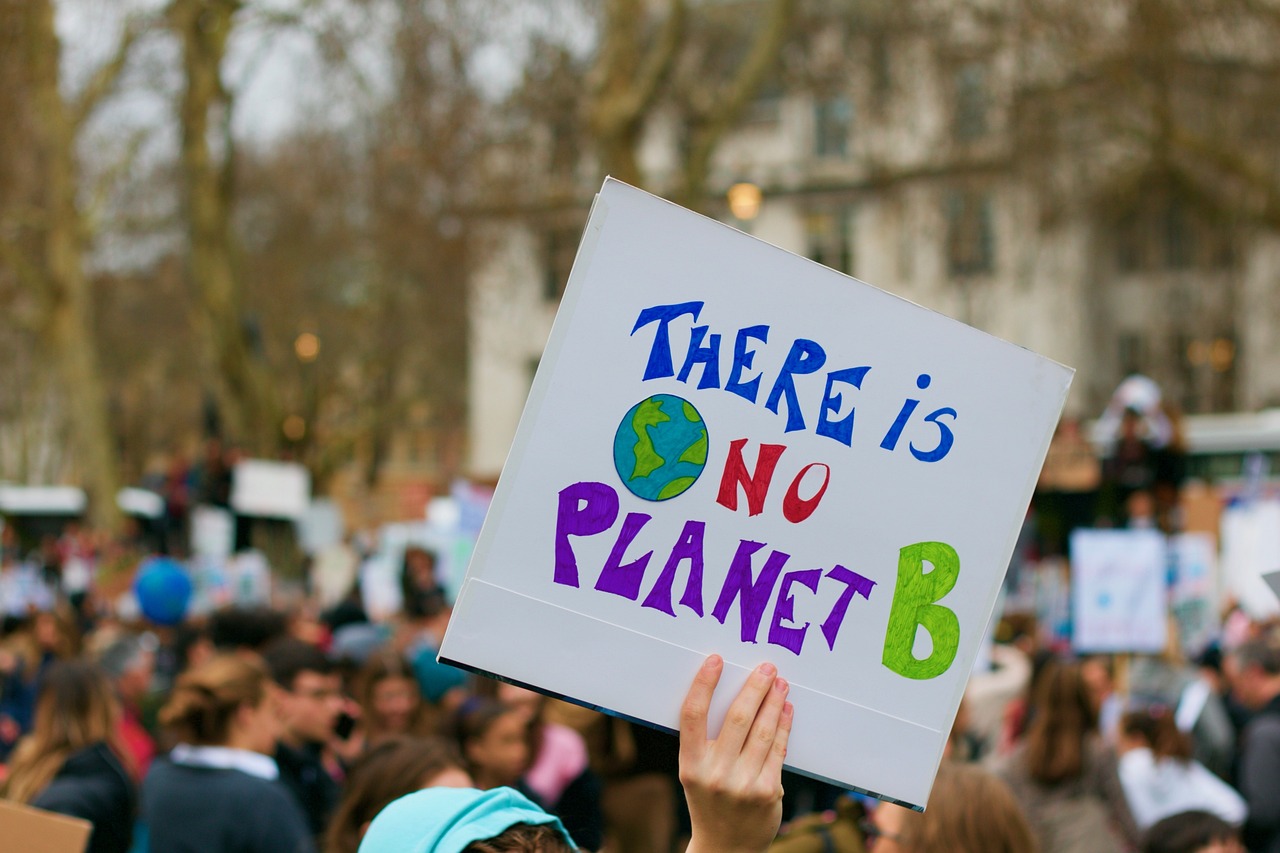
WASHINGTON, D.C. (March 13, 2025) – Yesterday, Environmental Protection Agency (EPA) Administrator Lee Zeldin announced that EPA will “reconsider” dozens of environmental protections. EPA’s rules protect millions of Americans from pollution and are crucial to averting the most devastating effects of the climate crisis. A key action on the chopping block is the Endangerment Finding – which is critical to regulating greenhouse gases and curbing climate change.
In 2009, after being ordered by the United States Supreme Court to fulfill its duties, EPA comprehensively reviewed climate science and arrived at an inescapable and long-understood conclusion: emissions of greenhouse gases like carbon dioxide are endangering public health and welfare by driving climate change. This determination, known as the “Endangerment Finding,” triggered EPA’s legal duty and provides its corresponding authority to regulate greenhouse gas emissions. The supporting scientific evidence has since grown exponentially stronger while Americans and the global community have suffered from the increased deadly fires, storms, floods, droughts, heat waves, and other impacts from climate disruption.
Yet now Zeldin’s EPA seeks to abdicate its duties to protect Americans from this threat to our health, economy, and national security by withdrawing the Endangerment Finding and vital environmental regulations. By denying the reality all around us and falsely declaring that greenhouse gases do not threaten human health, EPA would no longer be required to regulate them.
Alex Bomstein, Clean Air Council Executive Director, issued the following statement:
“Scientists have known that greenhouse gases cause climate change since the 1800s, and we are all now living through the wildfires, floods, and other climate chaos that generations of unchecked climate pollution have sowed. EPA’s attempt to reverse the Endangerment Finding is like declaring that tobacco doesn’t cause cancer and alcohol is fine for your liver. In attempting to deny reality, the Trump EPA wants to abandon efforts to protect us from the defining crisis of our time. We can’t let them do that.”
The impacts of climate change are already being widely felt in the mid-Atlantic region. From wildfire smoke to urban heat islands, to unprecedented flooding during storms, our communities are now facing new climate-related threats each year. Recently, parts of the region were inundated with two month’s worth of rain in two days, leading to widespread flooding, damage to homes and businesses, numerous water rescues, and at least one death in upstate New York.
Over the last decade, local precipitation levels have far outpaced climate change projections, while consistently exceeding the precipitation estimates used in new development projects to prevent future flooding. When industrial facilities use outdated precipitation models, and fail to take climate change and increased rainfall into consideration when designing or expanding facilities, our communities are put at greater risk for additional flooding and contamination of stormwater and soil. Our ability to be climate resilient in southeast Pennsylvania depends, in part, on accurate data being used for permitting decisions and sufficient planning to mitigate climate impacts to our communities.
To this end, Clean Air Council has commented on numerous stormwater pollution permits in Southwest Philadelphia and Delaware County over the past year, noting that increased precipitation and recent major rainfall events are not being adequately taken into account in permitting decisions for industrial sites. Some of these permits are for existing industrial sites in Southeast Pennsylvania, while others are for proposed industrial redevelopments. Click here to view a live map of these and other fossil fuel facilities in the Lower Schuylkill area.
BP Point Breeze Warehouse
The Council’s comments on a proposed warehouse development on a former tank farm at 6310 Passyunk Ave in Philadelphia were acknowledged by the Pennsylvania Department of Environmental Protection (DEP) and resulted in expanded stormwater management and more attention to soil contamination at the site. The Council’s efforts to protect the threatened Northern Red-Bellied Cooter, which has been seen at the site, have also been covered by the Philadelphia Inquirer and Grid Magazine.
Clean Earth of Philadelphia
The Southwest Globe Times featured the Council’s work to improve stormwater management at the Clean Earth of Philadelphia site, a former soil incinerator still handling contaminated soil in Southwest Philly. The Council submitted official comments disputing the facility’s claim that no stormwater had been discharged into the Schuylkill River since 2020 even though, by the facility’s own admission, stormwater at the site generally flows into the Schuylkill River. The Council also questioned the facility’s use of water treatment plant sludge and biosolids as soil additives necessary to reach a certain consistency. Adding additional contaminants to already-contaminated soil is an unnecessary risk to the Schuylkill and Delaware Rivers.
Philadelphia International Airport
The Council’s comment on a proposed stormwater permit at the Philadelphia International Airport was also acknowledged by DEP, resulting in increased scrutiny of the Airport’s pavement replacement project, both by DEP and Tinicum Township. The Council and our supporters pointed out in comments that the Airport had decreased its rainfall estimates in its current application, and pointed out that even the higher estimates do not reflect the last decade of increased precipitation in Philadelphia. The Philadelphia International Airport is located almost entirely in the 100-year floodplain and the entire site crosses the border of Southwest Philadelphia into Tinicum Township in Delaware County. After the Council commented on the permit application, DEP noted that the Airport’s application was not consistent with the host municipality’s stormwater ordinance, which requires higher rainfall estimates. The airport claimed that the specific project was entirely within Tinicum Township, but its application also did not comply with Tinicum Township’s stormwater discharge requirements. Tinicum Township eventually granted the airport a special exemption for the project and DEP acknowledged that it considered the Council’s comments during its permit review.
Darby Creek Tank Farm
The Darby Creek Tank Farm continues to be of great concern to the Council as it is located directly adjacent to residential communities in Southwest Philadelphia and Darby Township as well as the John Heinz Wildlife Refuge.

The stormwater that continues to gather at the site of the Darby Creek Tank Farm is so polluted that it is sent to the DELCORA water treatment plant and sewage incinerator in Chester, PA, which is also a major pollution source in a recognized Environmental Justice (EJ) community. The Council is currently working with nearby community organizations to advocate for the cleanup and sustainable redevelopment of this site, large portions of which are located in the 100-year floodplain
Marcus Hook Terminal, Marcus Hook
Recently the Council submitted comments on both the water pollution discharge permit and the hazardous waste storage permit for the Marcus Hook Terminal in Marcus Hook, PA, operated by Energy Transfer. Our comments raised concerns about a storage tank that discharges industrial waste directly into the Delaware River during heavy precipitation events. The Council demanded more accurate accounting of these potentially dangerous discharges and expanded stormwater storage capacity at the Marcus Hook Terminal. The Council is also concerned that the Marcus Hook Terminal continues to store hazardous waste generated when the facility was an oil refinery. Storing hazardous waste from a historic operation so close to the Delaware River is an environmental risk. In a response letter, Energy Transfer acknowledged that it is exploiting a regulatory loophole that allows hazardous waste to remain onsite without restriction because Energy Transfer left the hazardous waste where it was generated, rather than taking it to a proper storage area. The Marcus Hook Industrial Complex in Marcus Hook, PA is currently enrolled in the EPA’s hazardous waste cleanup program and the Council will continue to demand the site remediate soil and groundwater pollution in the effort to protect local public health.
East 10th St site, Marcus Hook
The Council recently opposed the U.S. Environmental Protection Agency’s withdrawal of the East 10th St. site in Marcus Hook, PA from the National Priorities List (NPL) of the EPA’s Superfund program. In the early 1900s this site was a large rayon manufacturing plant, which later transitioned to cellophane manufacturing before closing in 1977. The site then became a disposal area for hazardous substances like asbestos and was classified as a superfund site in 1994. If the site is taken off the superfund list, the cleanup will be managed entirely by Pennsylvania DEP, which approved a cleanup plan at the site that proposes to discontinue groundwater monitoring. The specific redevelopment proposal for this site has not been made public and could potentially cause significant flooding and dangerous pollutants to be dispersed into the Delaware River and surrounding communities. The lasting effectiveness of the ongoing land cleanup must be monitored by the EPA. As precipitation increases in this coastal area of Southeastern Pennsylvania and the need for expanded greenspace grows, the Council will continue to advocate for more environmentally-conscious development as well as the cleanup of former and current industrial facilities. The Council is actively engaging with local organizations in this area to keep them informed of polluting industrial proposals.
Climate Resilient Communities Project
In addition to commenting on and engaging residents in commenting on permits, the Council is working directly with residents through our Climate Resilient Communities Project. Earlier this year, the Council hired OLIN, a landscape architecture and urban design group, to model potential climate impacts on communities in Southwest Philadelphia and along the Delaware River in Delaware County. Specifically, this modeling looked at the potential impacts of major storms, storm surge, and flooding along the tidal Delaware and Schuylkill Rivers. The studies looked at the many industrial facilities in this region, and potential impacts to those facilities, including leaks and contamination that could impact surrounding residential neighborhoods. The Council worked with community leaders to form a Stakeholder Advisory Committee on this project, and met for the first time in July to review the initial findings. In the coming months, research findings will be presented to the larger community with the opportunity to envision local green infrastructure projects to mitigate the impacts of climate related heat and flooding. Such projects might include new green spaces or enhancements to existing parks, rain gardens, raised veggie gardens, trees and other plantings to cool neighborhoods down and also mitigate stormwater runoff and flooding. Residents of Southwest Philadelphia and southern Delaware County who are interested in envisioning together what these projects might be, and putting them into place, should contact Russell Zerbo, Advocate rzerbo@cleanair.org for more information.

Plastics are slowly killing life on earth. We enjoy the convenience of plastics but delude ourselves that we can dispose of them safely. We give little thought to the damage done to the environment and to public health that results from extracting the fossil fuel needed to produce and manufacture plastics. We worry about climate change but stubbornly do not make the connection between plastic production and emissions of greenhouse gases. Most people falsely believe that recycling plastics is the answer — even though the vast majority of plastics can not be recycled and there is no real market for recycled plastics. Most of us will remember that distressing video of a sea-turtle with a plastic straw stuck in its nose. That’s happening every day. Plastics don’t really break down, they turn into dangerous microplastics that we’re now consuming.
Plastics are everywhere — some are necessary, many are not. Food wrappers, cigarette filters, single-use plastic bags, plastic straws, styrofoam.
The easiest plastics to avoid are the single-use plastic items we use for convenience or out of habit. As residents, we pay a high financial cost for single-use plastics. The City of Philadelphia spends between $9 million and $12 million every year cleaning plastic bags from the streets, sewers, and bodies of water. Philadelphia alone uses approximately one billion plastic bags per year, many of which end up as litter in our neighborhoods. Pennsylvania taxpayers spend over $13 million every year just cleaning up roadside litter. This money should be spent on more important things such as public education.
The plastic and petrochemical industry mislead the public by marketing plastics as “recyclable” when in reality, less than 9% of all plastic ever produced has been recycled. There is no viable solution for plastic waste. According to the United Nations Environment Programme, 12% of plastics are burned in incinerators (increasing air pollution in communities of color where waste incinerators are typically located) and 79% of plastics are deposited in landfills, dumps or end up in the natural environment.
Nearly all plastics produced derive from oil, fracked gas, and coal — dirty, non-renewable resources. Plastics and the climate crisis go hand-in-hand: plastic production depends on fossil fuels, and fossil fuels rely on plastic production.
Another hidden cost to single-use plastics: human health. For instance, Royal Dutch Shell’s 386-acre ethane cracker—built to make plastics— is set to power up this year about 25 miles outside of Pittsburgh in Beaver County. Shell’s plant will release 159 tons per year of fine particulate matter and 522 tons per year of volatile organic compounds (VOC), according to the Council’s 2014 Health Impacts Assessment. VOCs exacerbate health conditions including asthma, cardiovascular disease, cancer, endocrine disruption, and adverse birth outcomes.
There are also terrifying new links being made between microplastics and other toxins. Scientists are finding that microplastics accumulate toxins like DDT and PCBs from trace levels that may already exist in the environment, and deliver them to wildlife and humans that eat them, often bioaccumulating through the food chain.
The Council spent more than 10 years advocating to pass a Philadelphia single-use plastic bag ban. However, Philadelphia’s plastic bag ban was delayed one year due to COVID-19 and will now go into effect on July 1, 2021.
The Council advocates for turning off the “plastics tap,” and is fighting legislation that would limit local government’s ability to regulate single-use plastic items. Representing Pennsylvania residents in court, the Council joined the City of Philadelphia, Borough of West Chester, Borough of Narberth, Lower Merion Township, and the City of Pittsburgh in a lawsuit to overturn the state’s unconstitutional preemption of municipalities from enacting or enforcing single-use plastic legislation. The Council is fighting for local residents and leaders to implement sustainable solutions locally to plastic pollution.
It’s time to end our addiction to plastic, enact local solutions, and choose to protect the environment over convenience. Start by ditching single-use plastics for Plastic Free July and spreading the word about plastic pollution.
Written by Jessica Bellwoar, Development Officer, jbellwoar@cleanair.org. For more information on the PA Plastics Preemption lawsuit contact, Logan Welde, Staff Attorney, lwelde@cleanair.org.
Tags: Plastics, recycling, waste, zero waste, litigation

The Path to Deep Decarbonization in Pennsylvania
July 6, 2021– The climate crisis is accelerating and intensifying. An alarming new analysis released in mid-June by NASA and NOAA found that the planet is trapping roughly double the amount of heat in the atmosphere that it did just 15 years ago. We know that climate tipping points could trigger other climate tipping points in a domino effect, leading to irreversible impacts. Earth has already warmed roughly 1.1 degrees Celsius since the 19th century. Even if we magically zeroed out all greenhouse gas (GHG) emissions tomorrow, that warming is baked in for decades. Thankfully, we have the tools available to save lives and prevent the worst impacts from being felt. But we need to enact sweeping policy changes now and over the course of this decade to make that happen.
In Pennsylvania, historically a major fossil fuel state, key sources of GHG pollution can be broken down into these categories:
- electricity generators (coal-fired and fracked gas-fired power plants);
- industrial activities (e.g., fracked gas extraction and processing, iron and steel production, cement manufacturing);
- transportation sources;
- residential and commercial buildings, and
- agriculture
To oversimplify things, here’s a two-step path to dramatically curb emissions: (1) decarbonize the electricity sector; and (2) then electrify everything. There will be countless complementary policy measures needed to implement that plan (and not everything can be easily electrified) but it’s a solid framework to guide our efforts.
To help decarbonize Pennsylvania’s electric sector, Governor Wolf directed the Department of Environmental Protection (PADEP) to draft rules to establish a CO2 Budget Trading Program and allow the Commonwealth to participate in the Regional Greenhouse Gas Initiative (RGGI) beginning in 2022. RGGI is a collaborative effort between 11 neighboring states that uses a market-based auction approach to put a price on carbon for polluting power plants. RGGI states have seen their power sector carbon pollution cut in half since 2009. PADEP projects that RGGI participation will cut up to 227 million tons of CO2 by 2030, while generating hundreds of millions of dollars in annual proceeds for reinvestment in Pennsylvania businesses and communities. This is a strong first step.
Pennsylvania would also benefit from President Biden’s proposed Energy Efficiency and Clean Electricity Standard (EECES) – which aims to fully decarbonize America’s electricity sector by 2035 – and by the U.S. Environmental Protection Agency’s (EPA) plans to reinstate a strengthened version of President Obama’s Clean Power Plan. In March, Governor Wolf also announced a major public-private partnership (called “PULSE”) to install seven new solar arrays in counties across Pennsylvania that will supply nearly half the electricity used by state government. This project will go into operation beginning January 1, 2023, and represents the largest commitment to solar energy by any government in the U.S. That’s a decent start for the electricity sector.
Pennsylvania also needs to significantly invest in expanding our electric vehicle (EV) charging infrastructure and accelerate consumer knowledge and adoption of EVs. In February, PADEP announced it intends to promulgate a proposed Zero Emission Vehicle (ZEV) rulemaking later this year, which would require automakers and dealerships in Pennsylvania to sell a certain amount of electric cars and trucks. However, it’s not enough to simply change motors in the vehicles we drive. We need to incentivize transportation mode shifting by making substantial investments in public transit, railways, bike trails, and walkable corridors in our cities and suburbs.
On the industrial side, Pennsylvania is the second-largest fracked gas producing state in the country. Our gas industry emits over 1.1 million tons of methane pollution every year. Methane, the primary component of fracked gas, is an extremely potent climate pollutant and leaks across every stage of the gas supply chain. PADEP is finalizing a rulemaking to control methane emissions from existing infrastructure (well sites, compressor stations, and processing plants), but the proposal currently exempts so-called “low-producing” wells from routine inspection requirements. In practice, this means over half the methane emissions from existing sources will continue to go unchecked. Clean Air Council helped deliver tens of thousands of comments during the public comment period last year urging PADEP to close this loophole.
The Biden EPA is also planning to draft federal methane rules for existing sources, which we anticipate seeing introduced as early as September 2021. Those have enormous potential to reduce Pennsylvania emissions. So too would the $16 billion called for by President Biden in his American Jobs Plan to plug orphaned wells and clean up abandoned mine lands. Pennsylvania has hundreds of thousands of orphaned gas wells (the vast majority of which aren’t even documented) that desperately need funding to plug up methane that’s been leaking for decades.
Finally, about 11% of Pennsylvania’s GHG pollution comes from burning fossil fuels to heat space and water in our residential homes and commercial buildings. In Philadelphia, our building stock contributes more than 70% of the city’s GHG emissions. We need to move quickly to incentivize all-electric construction in new buildings, while taking bold steps to retrofit and electrify our existing buildings. This can happen at the municipal level, where Philadelphia is conducting a Diversification Study to examine the future of Philadelphia Gas Works, the nation’s largest municipally owned fracked gas utility. It can also happen at the federal level, where another key component of President Biden’s American Jobs Plan would invest billions in retrofitting our nation’s homes and buildings.
Clean Air Council has been directly involved in all the various legal and policy issues surrounding these plans in the past year. There is so much that needs to happen and quickly. Thankfully, we have a solid grasp on how to reach our goals and these multifaceted efforts should work in tandem to drive down emissions. It’ll be the challenge of our lifetimes, and it’s already begun.
For more information, please contact:
Robert M. Routh, Esq.
Public Policy and Regulatory Attorney
rrouth@cleanair.org
HARRISBURG, PA (June 30, 2021) We celebrated a big victory in mid-June with a court ruling that restored the rights of people across Pennsylvania to challenge fracked gas projects that threaten their health and their environment! Residents of Upper Bucks County and a local municipality, West Rockhill Township, had appealed a decision of the Pennsylvania Department of Environmental Protection granting an air pollution permit to the Adelphia Gateway Pipeline project for its Quakertown Compressor Station. The Adelphia Gateway Pipeline is a gas pipeline cutting through the Lehigh Valley and the Philadelphia suburbs. Compressor stations are large, polluting facilities that push the gas along the pipeline to its destination.
The Pennsylvania Environmental Hearing Board (EHB) had thrown out the appeals, saying that it didn’t have a right to hear them, and that only federal appeals courts could hear challenges to projects that are part of interstate gas pipelines. But the EHB is designed to make it simple for everyday people to file appeals. At the EHB, parties can bring new evidence to the judges and have a trial on the new evidence. Challenges to these projects in federal court can be more complicated and don’t allow the parties to put on new evidence and have a trial. The EHB decisions had kept the township and the residents from getting their day in court and threatened to keep other people from being able to exercise their rights to appeal harmful projects, too.
With Clean Air Council’s help, the parties appealed the EHB’s decisions to the Pennsylvania Commonwealth Court. The Commonwealth Court reversed the decisions, agreeing that federal law dealing with interstate gas pipelines did not conflict with state law giving people the right to take their appeals to the EHB. The residents and the township can now move ahead with their cases at the EHB challenging the dangerous Quakertown Compressor Station, and all Pennsylvanians’ rights have been protected!
For more information contact Alex Bomstein, Senior Litigation Attorney, abomstein@cleanair.org

